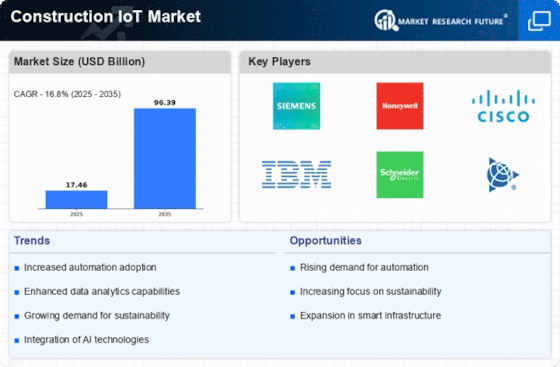Market Trends
Key Emerging Trends in the Construction IoT Market
The construction IoT market is on its way to be changing basically the entire industry due to the shifts emerging right now. Technology introduces innovation repeatedly and IoT is one of various tools builders deploy to optimize work, safety and realize better overall construction management. When it comes to building sites, sensors and IoT device has been included in the construction tools and machine. These connected devices collect data in real time on the performance of the equipment, its needs for maintenance and the helpfulness for your patrons, therefore enabling proactive interventions and minimizing the downtime productivity.
Moreover, the use of BIM in conjunction with the construction IoT devices is becoming the trend in the construction Industry. Implementation of BIM means up build up the digital picture of a construction project and in association with the IoT, it permits to conduct real-time monitoring and analysis for multiple parameters like ambient temperature, humidity and structural strength. This way it ensures participation of stakeholders, generates a decision-making matrix, and makes the building process uncomplicated.
Safety has key focus in the construction sector and through the rise of the Internet of Things (IoT), a solution to this problem has been identified. Wearable devices with integrated sensors can accurately record movements of workers, collect physiological information and detect in time the life-threatening intruders. Such real time data would enable project managers to swiftly realign their workforce and adjust their safety measures accordingly, including additional training or equipment should they find any safety issues upon inspection. And this promotes a safer worksite for all the construction personnel.
Of course, smart buildings are a driving force as well in the B&C IoT market. Data-driven building management appliances that include sensors for lights, air conditioning and heat appear within smart buildings and therewith ensure energy saving and sustainability. In addition to lower operational expenditure, these smart buildings solutions also help implement the most defined in green construction sector. Using IoT technology to secure environmental goals objectives and comply with regulations are some the schemes that construction companies are adopting as concerns for the environment becomes paramount.
The embellishment of edge computing in the Construction IoT market influencing the evolution of data processing and analytics as well is another factor. Edge computing implies processing data midway between its resource and its final destination instead of forwarding all the data to a single centralized cloud server. The construction app will feature data processing, where real-time data obtained including from on-site sensors and devices can be processed locally, bringing down latency with faster decision making. The most pressing of these concerns is probably the fact that it is necessary for timely and data-rich management of construction projects.


















Leave a Comment